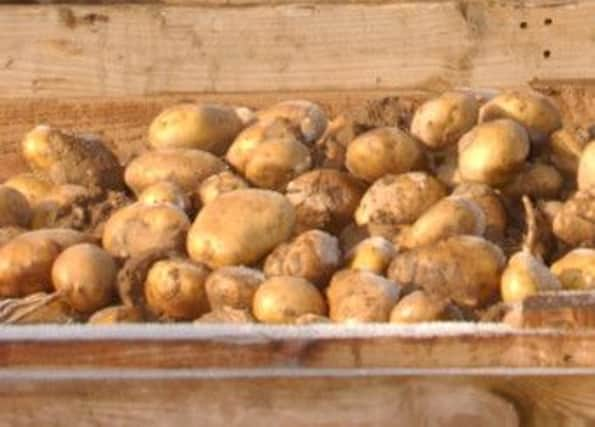Scots scientists put healthy superspuds on menu


The potato long sustained the Incas and their predecessors in South America before the Spanish conquest saw it exported to became a staple in most corners of the world. Today it is the most commonly grown root vegetable and the third most important food crop globally because it is nutritious, cheap and fairly easy to grow.
But the obesity epidemic and rise of faddy diets in the developed world has seen the starchy tuber fall out of favour against the likes of pasta and rice, which are seen as healthier options.
Advertisement
Hide AdAdvertisement
Hide AdNow researchers at the James Hutton Institute in Dundee and Aberdeen are working to create a new generation of superspuds that can fight health problems from diabetes and cancer to failing eyesight.
Scientists at the institute are developing new breeds including a low-GI potato that tastes just as good but is less fattening than the most popular varieties. There’s also an eyecatching purple tattie that is packed full of flavinoids and will deliver the same health boosts as “super foods” such as acai berries and blaeberries but without the high dose of sugar.
Then there’s a bright yellowy orange spud with high levels of carotenoids, which can help stave off age-related macular degeneration, and a version fortified with zinc to address what the World Health Organisation says is a global deficiency in the mineral.
“Potatoes have had a bad name, they’re no longer trendy,” said Professor Derek Stewart, who leads the institute’s Enhancing Crop Productivity and Utilisation research.
“A lot of foods that have been around for a long time tend to go through this. People get bored with them. They need to be presented in a new manner.”
With obesity, diabetes and other lifestyle health problems on the increase, it is time for better management of our diet, according to Stewart.
“The first knee-jerk reaction is to remove potatoes from it,” he said. “That’s crazy. Potatoes have got everything you need really. It may be boring living on just potato but you can do it. Because we’ve gone away from the traditional diet and perhaps gone for faddy diets, people are losing certain minerals from their diet.
“ To my mind, potatoes should be a staple of school dinners. They should be served once or twice a week or at least be there as an option for kids. Potatoes will be fattening if you eat lots of them but you can say the same thing about bread, pasta, rice – all of these things will load you up. It’s just about balancing the diet.”
Advertisement
Hide AdAdvertisement
Hide AdCelebrity chef Nick Nairn, who became the youngest Scottish chef to win a Michelin star in the 1990s, was enthusiastic about the new potatoes but said the real test would be when he could experiment with them in his kitchen. “It’s very exciting,” he said. “Scotland in many respects is a world leader in research into crop genetics and agriculture. This is fantastic Scottish research. And if we can find a healthy potato, that’s brilliant.”
The research is funded by global brands such as Albert Bartlett and Walkers and grants from the Scottish Government.
Scotland’s seed potato industry, worth around £68 million a year, receives £4m in government support.
Rural affairs minister Richard Lochhead said: “Scotland is one of the world’s top producers of seed potatoes, and our commitment to research on the nutritional quality of the crop has helped reinforce our excellent reputation.”